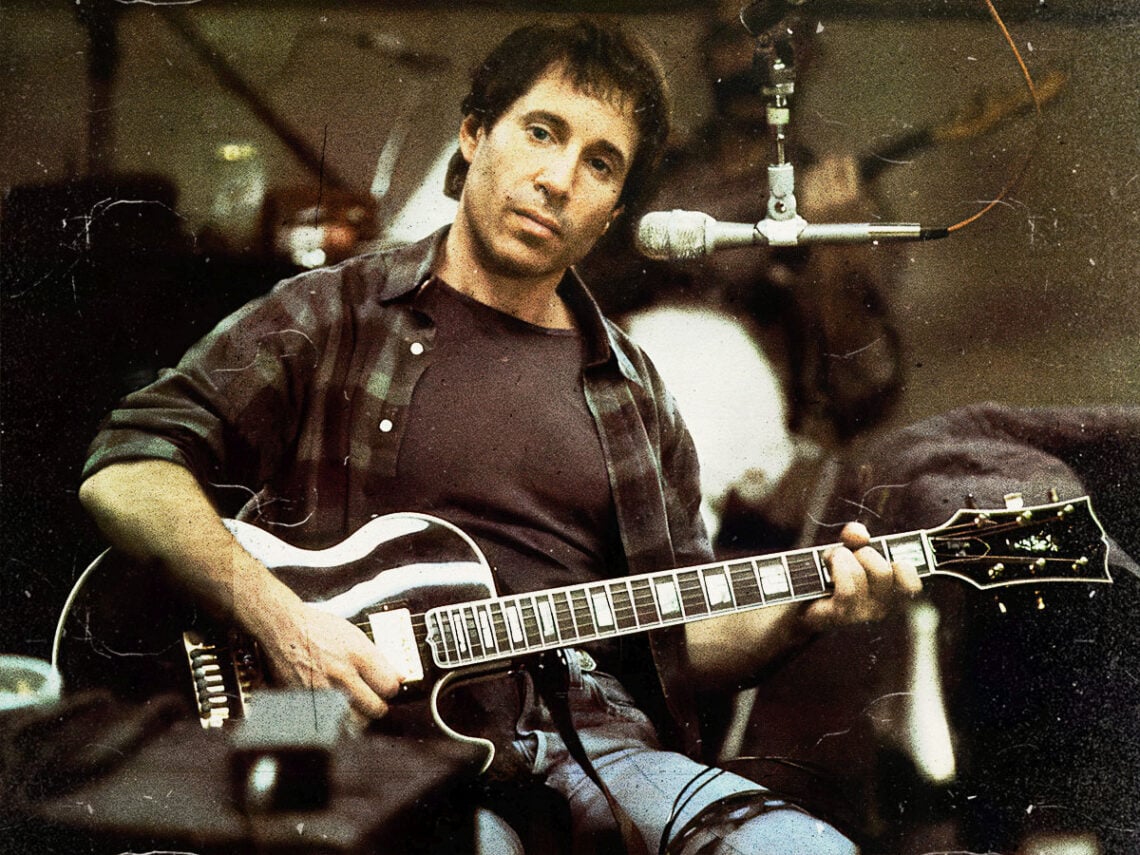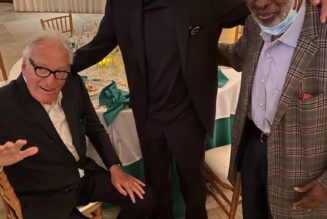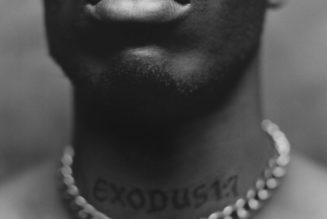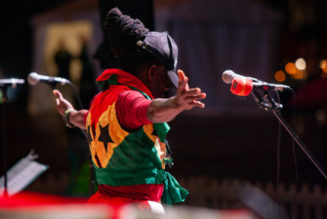
(Credits: Far Out / Alamy)
Paul Simon’s ‘Graceland’ has rightfully gone down in history as one of the greatest songs of all time. Despite being named after Elvis Presley’s famous home, ‘Graceland’ as both a song and an album finds its main inspiration elsewhere.
Originally, ‘Graceland’ was just a stand-in title. When Simon wrote the 1986 track, it simply reminded him of the Sun Records sound, the influential label behind Presley. Adding “Graceland” into the song as a fill-in word while he tried to think of a better lyric, he eventually gave up. He’d never even been to the famous home when he wrote it, telling one interviewer: “I couldn’t replace it. I thought, Maybe I’m supposed to go to Graceland. Maybe I’m supposed to go on a trip and see what I’m writing about, and I did.”
The lyrics were prophetic as Simon describes the trip he would eventually take, later adding in more specific details about the landscapes and countryside he saw. But in terms of musical influence, he was looking way further afield. ‘Graceland’ might be named after a key American landmark but finds its inspiration in Africa.
Regarding the track, Simon had a clear list of influences. As one trip inspired a song about another, the musician was reflecting on a 1985 journey to South Africa, where he recorded with local artists he discovered. Finding himself incredibly inspired by the sounds he was hearing, the trip informed the entirety of the Graceland album.
But when it came to the title track, Simon said it was an example of “how a collaboration works even when you’re not aware of it occurring”. Slowly picking up more and more inspiration on the trip, he met accordion players, drummers and more. When it came to recording ‘Graceland’, he brought together a rhythm section comprised of three African musicians: guitarist Ray Phiri, fretless bass player Baghiti Khumalo, and drummer Isaac Mtshali.
Bringing the African musicians into the studio for a distinctly American song was a fascinating coming together of Simon’s two influences for the song. Guitar player Phiri started to play with minor chords that weren’t frequently used in African music. When Simon asked him why he was playing that, he responded, “I was just imitating the way you write”. Playing his impression of what American country is, the guitar heard on the track is the fuse of Simon’s style and Phiri’s music origins.
On bass, Khumalo is playing a straightforward African groove, while Mtshali holds the track down with a simple rhythm. The combination of all the musicians, merging classic Americana with African details, made something magical. Simon felt there was a commonality in the music and wrote the lyrics to express that, contemplating travel, companionship and America.
Elvis Presley’s influence is also a major component of the song. Considering Sun Records when he first started on the track, Simon also pays homage to the iconic label behind names like Presley, Jerry Lee Lewis and Johnny Cash. Interested in the genres of R&B and country, Sun Records was a vital piece of the puzzle as the sound of the 1950s began to merge the two.
Simon said about the coming together of these influences: “The part of me that had ‘Graceland’ in my head I think was subconsciously reacting to what I first heard in the drums, which was some kind of Sun Records/country/blues amalgam.”
When it came to adding in the African musicians, that’s where the sound got interesting, as Simon added, “What Ray was doing was mixing up his aural recollections of what American country was and what kind of chord changes I played. So the whole song really is one sound evoking a response, and that eventually became a lyric that instead of being about a South African subject or a political subject, it became a travelling song.”
To the musician, ‘Graceland’ stands as a testament to the multicultural and cross-continent powers of music, stating, “That’s really the secret of World Music is that people are able to listen to each other, made associations, and play their own music that sounds like it fits into another culture.”








